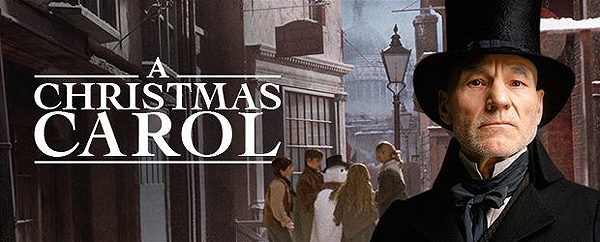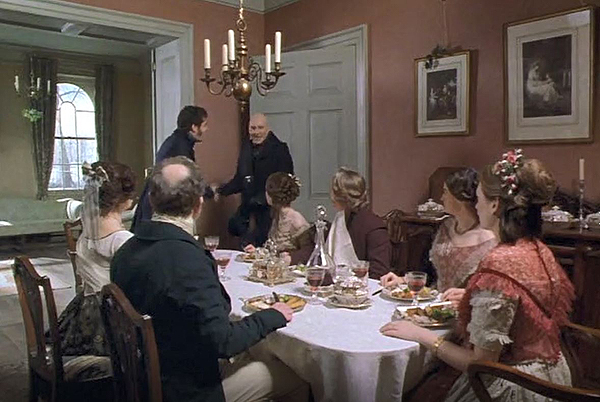
It Is for You, Too! |
||||
|
One of my favorite stories at Christmas time is A Christmas Carol, by Charles Dickens, written in 1843, which has been re-interpreted in many movies since then. It recounts the story of Ebenezer Scrooge, an elderly miser who is visited by the ghost of his former business partner Jacob Marley and the spirits of Christmas Past, Present and Future. Their overall message was to warn him to change his ways or face a terrible, everlasting fate. After their visits, Scrooge is transformed into a kinder, gentler man. On Christmas day, when Scrooge awoke from the spirits' visits, he was overjoyed that he had not missed Christmas. No longer a humbug to him, he anonymously sent a large turkey to his poor clerk, Bob Cratchit, for Christmas dinner; he wished a "Merry Christmas" to those he happened upon the street; and he went to church and sang Christmas hymns of the birth of Jesus and His saving power from sin and Satan. Perhaps one of the most moving scenes in the story was when he went to his nephew Fred's home. Fred had often invited Scrooge to Christmas dinner only to be rebuffed with ill-mannered contempt. He now wondered if he would be accepted. Tentatively Scrooge knocked on the door and was met by the housekeeper. He greeted her kindly but declined her offer to announce his arrival. He walked to the dining room door, cautiously opened it, and peered inside. His nephew, his wife and their friends were enjoying a sumptuous Christmas feast with much gaiety and merriment. He cleared his throat to announce his presence and said, "Fred, it's I. It's your Uncle Scrooge. I've come to dinner. Will you have me, Fred?"
Fred said with amazement and joy as he sprang to his feet, "Bless my soul! Have you? Of course, we'll have you!" Grinning from ear to ear, Fred grasped Scrooge's hand and shook it vigorously in wholehearted welcome. Then Scrooge walked over to Fred's wife at the end of the dinner table, contritely held his hand to his heart, and said, "And you, my dear. Can you forgive a stupid old man who doesn't want to be left out in the cold anymore? Will you take me in?" With a kind smile she rose to her feet and said, "Merry Christmas, Uncle!" She kissed him on both cheeks and laughed as all around the table happily said, "Merry Christmas!" In that moment Scrooge truly felt that the joy of Christmas, of family and friends, and the love they shared was for him, too. When God made a covenant with Abraham, and later with his descendants, He said that in him all the families of the earth would be blessed (Genesis 12:1-3). In the covenant He made with Israel at Sinai, some of the purposes of God was to reveal His holy character through a distinct people, the descendants of Abraham, Israel; reveal the innate sinfulness of humanity; provide forgiveness through sacrifices/offerings for those placing their faith in the God of Israel; and show that because all fall short of God's standard of holiness, we need to rely solely on His mercy and grace. And according to God's mercy and grace, from God's covenant people came Jesus the Messiah to bless all the nations of the earth. This can be seen in Isaiah 49:5-6:
In this passage the Servant of the Lord (Jesus) not only restores the descendants of Israel, but also reaches out to the Gentiles by taking God's salvation to the ends of the earth. It was the intent of the Lord to make Israel a beacon of light to the world so that message of salvation through Jesus Christ would go to all the peoples of the world. They too would know that it is for them, too! Even though Jesus told the Syrophoenician woman whose daughter was tormented by demons that He came only to the lost sheep of the house of Israel (Matthew 15:21-28), He granted her request and healed her daughter because of her great faith. He preached the gospel to a Samaritan city (John 4:7-42). When a Roman centurion sought Jesus to heal his beloved servant, Jesus honored His request due to his great faith, even adding that in the kingdom of heaven many would come from the east and west and dine with Abraham, Isaac, and Jacob (Matthew 8:5-13). Jesus gave other indications that His power and compassion encompasses all people. At the end of His earthly ministry Jesus commissioned His disciples to proclaim the gospel to all the nations (Matthew 28:16-30). Jesus said He was the Good Shepherd, and He predicted that His flock would expand beyond the Jewish people to include the Gentiles. (John 10:14-16) But it took some time for the early church to recognize that salvation was available to the Gentiles. The Jewish Christians who fled the persecution in Jerusalem went into the Gentile regions of Phoenicia, Cyprus, and Antioch, but they were "speaking the word to no one except to Jews alone" (Acts 11:19). Even though commissioned by Jesus Himself to preach the gospel to all nations, Peter was hesitant to bring the gospel to a Gentile household. But God made it clear to him that Cornelius should not be considered unholy or unclean, but that salvation through faith in Jesus Christ alone was for him and his family, too (Acts 10). The Apostle Paul in Romans 11 showed how God has not rejected His people, Israel, but has turned their unbelief into a means to bring salvation to the Gentiles. And in doing so cause jealousy among the Jewish people to bring them to faith in Jesus in the end.
In Ephesians 3:1-7 he says,
Paul is so overwhelmed with awe at the majesty, wisdom, and greatness of God that all he can do is worship and praise Him:
Do you feel like you are out in the cold and desire rest for your soul? Do you have any deep-seated uneasiness in the beliefs that you hold or a religious organization to which you belong because you are unsure whether you have done enough to make it to heaven? Jesus says,
Forgiveness and reconciliation with God only come through trusting in Jesus Christ. Trust in Him alone and know true rest, reconciliation with God, and assurance of salvation for your soul. It is for you, too! |
||||
|
